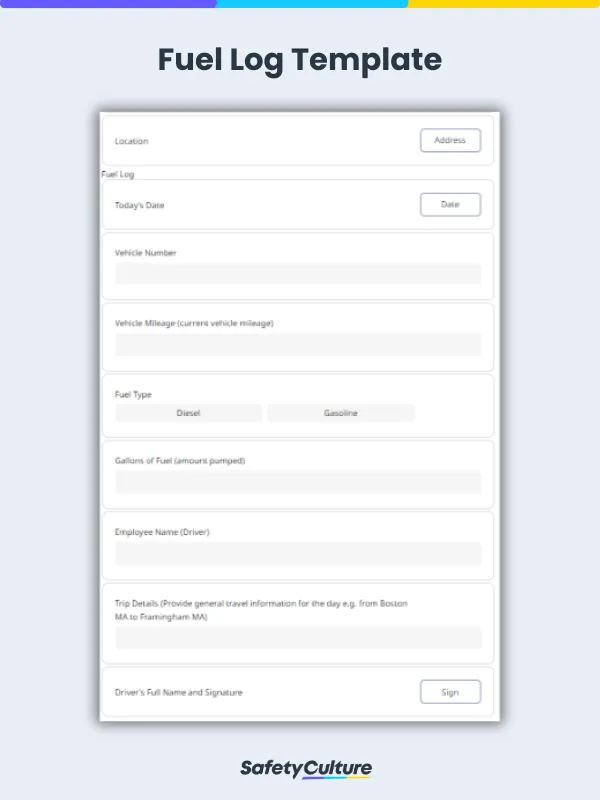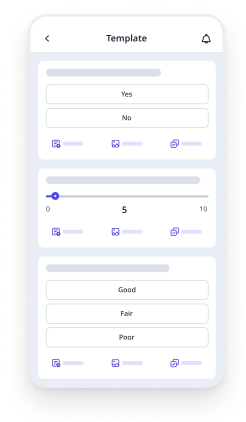Published 26 Sept 2025
Article by
3 min read
What is a Fuel Log?
A fuel log, also known as a fuel log book, records the fuel consumption details of individual fleet vehicles. It may include information such as the starting fuel, distance traveled, ending fuel, and total mileage along with vehicle IDs for easy reference. Fuel logs are primarily used by fleet drivers and fleet managers to keep track of fuel expenses for bookkeeping purposes.
What is a Fuel Log Template?
A fuel log template is a pre-made form used by fleet drivers and fleet managers when recording fuel consumption details. They are typically printed out on paper form and manually completed by hand. Fleet drivers then submit their completed fuel log templates to fleet managers and/or other key stakeholders for recordkeeping purposes.
Fuel Log Template: The Benefits of Digital Tracking for Better Fleet Management
Fleet management entails more than just ensuring that your company’s service cars, vans, and trucks are fit to operate as needed. One of the most important aspects of a fleet manager’s job is to ensure that fleets are operating at an optimal, cost-efficient level. Digitally tracking the fuel consumption of individual fleet vehicles help with fleet management in the following ways:
Be Aware of Fleet Fuel Expenditure
For transport and logistics companies, as well as businesses that rely heavily on their private fleets for product and service distribution, fleet fuel costs count as a major expense. Digitally tracking the fleet’s fuel expenditure ensures that fleet managers are constantly aware of daily fuel spending and whether or not it exceeds accepted levels.
Identify Outliers and Correct as Needed
Paper fuel log templates require fleet managers to manually transcribe and compile the data from each individual log for recordkeeping purposes. Digital fuel logs, however, automatically compile and organize collected data. This allows fleet managers to easily identify negative and positive outliers so bad practices can be unlearned, and best practices can be rolled out and standardized across the entire fleet.
Track Vehicle Mileage and Optimize Maintenance Schedule
In addition to tracking fuel consumption for cost-efficiency, tracking a vehicle’s total mileage informs fleet managers if units are due for maintenance servicing. Industry best practices recommend that commercial long-haul trucks be serviced annually, or after every 30,000 miles, whichever comes first. An optimal maintenance schedule helps operational efficiency by ensuring that vehicles are in good condition. Additionally, it helps operations become more-efficient by avoiding instances of over maintenance. For example, in the healthcare industry,ambulance fleet management software can greatly improve maintenance.
Make Fuel Logging Paperless and Cost-Efficient
Using pen-and-paper for fuel logging means important fleet records are vulnerable to loss, damage, and unauthorized access. Paper documents also require manual storage and organization which uses up working space, time, and energy. Digital fuel log templates eliminate this problem through safe and secure storage, and automatic data organization for easy access.
Automate Fuel Log Reports
With a digital fuel log template, fleet drivers can automatically generate professional fuel log reports upon template completion. A good digital fuel log template does more than just eliminate paper forms; they help fleets streamline their entire fuel logging process.


